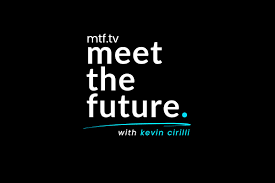QUANTUM // ARTIFICIAL INTELLIGENCE

—> THE STUDY: Researchers from Baylor and UT Austin analyzed data from 57 studies, covering 411,000+ adults over age 50. Tech users — whether smartphones, social media, or calendar apps — had significantly lower rates of cognitive decline and dementia.
—> WHY IT MATTERS: Staying connected via tech may keep older brains more stimulated, socially engaged, and independent. Apps that help with reminders, messaging, or video calls could act as “scaffolding” for memory and focus.
Source: Science Alert | The Guardian | Nature Human Behavior
hello, future. it’s me, kev.
…and this is a dispatch from the digital frontier. It’s time to meet the future NOW — with the latest on markets, tech, and freedom. The day is 113. The year is 2025. The planet is Earth.
The planet has complete 30.96 percent of its annual orbit around the sun star.
My name is Kevin Cirilli —> LinkedIn. Spotify. Sign-up to receive the future in your inbox here.
Subscribe to our YouTube channel.
Back to the future…

—> WHAT SCIENTISTS FOUND: A team at the University of Colorado ran climate models simulating rain and snow on Mars. Turns out, the valleys carved into the red planet line up perfectly with the kind of erosion you’d get from heavy, planet-wide precipitation — not just melting ice.
—> WHY IT MATTERS: If Mars once had a temperate climate, it means it might’ve been habitable. And understanding how Mars once warmed itself (despite a weaker sun) could help us figure out how to warm it up again — this time with science.
—> THE TECH ANGLE: Researchers are already exploring futuristic terraforming plans — like releasing greenhouse gases, deploying orbital mirrors, or even crashing icy comets into the surface — all designed to raise pressure and temperature. If Mars pulled off spring once, we might do it again.

Source: Phys.org
CRYPTO

—> BUILT-IN SCARCITY. Every four years, Bitcoin cuts the number of new coins it releases in half. The latest “halving” happened in April 2024, making Bitcoin even harder to get — and that’s pushing prices up. It’s basic supply + demand.
—> CRYPTO-FRIENDLY WHITE HOUSE: With President Trump calling for America to become a “Bitcoin superpower,” policy momentum is turning pro-crypto — giving investors more confidence.
—> INSTITUTIONAL BUY-IN: Big banks and firms are warming to crypto again, expanding custody services and ETF offerings. BlackRock, JPMorgan, and others are laying infrastructure that treats Bitcoin less like a trend and more like a long-term asset.
—> HOW HIGH COULD IT GO? Bitwise still says $200K is in reach by end of year. Standard Chartered? They’re looking at $500K by 2027.
Source: U.S. News
SPACE

—> HOW WE FOUND IT 
—> WHY IT MATTERS TO YOU 
—> WHAT’S NEXT 

Sources: NASA | ESA | Phys.org | The Astrophysical Journal
ONE MORE THING
ROCKIN’ ROBIN, TWEET. TWEET: ANIMAL PERSONALITY? YOU CAN HEAR IT IN THEIR SONGS. New research out of Australia shows that some birds literally sing their personalities — with complex, varied songs from bold explorers and simpler tunes from more aggressive types.
—> THE STUDY: Scientists studied superb-fairy wrens and found that birds with adventurous streaks learned richer songs, likely by interacting with more “tutors.” Even female birds showed this link — a first in songbird science.
—> WHY IT MATTERS: This adds to growing evidence that animal communication is more layered — and personal — than we ever realized. It’s one more reason to believe that with the right tech, we might not just talk to animals… we might start to understand who they are.
Source: Cosmos Magazine
With gratitude,
Kev
ABOUT mtf.tv’s meet the future: mtf.tv’s meet the future is a cutting-edge platform focused on addressing key challenges at the intersection of national security, technology, and business. With a mission to embrace freedom to meet the future’s challenges and opportunities, mtf.tv offers forward-thinking media offerings and forums.


